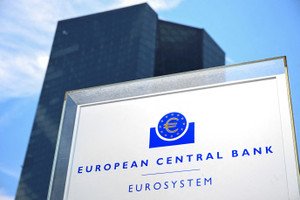ECB to cut rates four more times by mid-year, say economists - Reuters poll
Published by Global Banking & Finance Review®
Posted on January 15, 2025
4 min readLast updated: January 27, 2026

Published by Global Banking & Finance Review®
Posted on January 15, 2025
4 min readLast updated: January 27, 2026

The ECB is set to cut interest rates four times by mid-year to support the euro zone economy amid US tariff threats, according to economists.
By Indradip Ghosh and Jonathan Cable
BENGALURU/LONDON (Reuters) - The European Central Bank will extend back-to-back interest rate cuts at least until July in an effort to shield the weak euro zone economy, which faces an imminent threat from U.S. tariffs, according to a majority of economists polled by Reuters.
U.S. President-elect Donald Trump is set to return to the White House on Monday. His economic plans, which include at least 10% tariffs on all imported goods, have sent shockwaves through financial markets, raising worries more pain is ahead for the common currency union.
The ECB can ease policy further this year but must find a middle ground that neither induces a recession nor causes an undue delay in curbing inflation, which has turned higher, ECB Chief Economist ECB-POLICY-LANE-00602025-2d60-4b66-bf90-96ec7c848621>Philip Lane said on Monday.
The bloc's top two economies are mired in political turmoil and activity has remained sluggish. Germany's economy contracted 0.2% last year, the Federal Statistics Office said. The euro zone economy ended 2024 in a fragile state, a PMI survey showed.
"Given the political situations in France and Germany, there is a high risk we will see inactivity in Europe which will certainly hold back investment, consumption and also makes Europe potentially weaker in reacting to Donald Trump," said Carsten Brzeski, global head of macro at ING.
"The ECB will have to deliver on rate cuts, because if they don't, they risk undershooting inflation," he said.
The ECB's Governing Council started its easing campaign last June, delivering four interest rate cuts in 2024. They still have several more in store this year.
All 77 economists in the Jan. 10-15 poll said the deposit rate would fall another 25 basis points on Jan. 30 to 2.75%. A 60% majority, 46 of 77, expect three more cuts by mid-year, in March and two in the second quarter, taking the deposit rate to 2.00%, largely unchanged from last month.
The rest, 31, shared varied views on where the rate would be by end-Q2, ranging from 1.75% to 2.50%.
It will be 2.00% until at least mid-2026, poll medians showed.
A further 30 of 76 economists said the deposit rate would be below 2.00% by end-year while 13 said higher.
Markets are fully pricing in a cut this month and around 90 basis points of reductions in total this year. That is in stark contrast to just one 25 basis point reduction priced in by year-end from the U.S. Federal Reserve amid rising concerns of a resurgence in inflation.
"The threat of tariffs from the U.S. is affecting investment decisions already in the euro area and that's contributing to the relatively weak growth outlook," said Chris Scicluna, head of research at Daiwa Capital Markets Europe.
Scicluna was one of the top forecasters for the euro zone in Reuters polls last year, according to LSEG StarMine calculations.
"It is possible they (the ECB) will cut rates by more than 100 basis points if the economic outlook deteriorates significantly further," Scicluna added.
Growth across the 20-member currency union will likely be 1.0% this year and 1.2% next year, the poll showed.
The recent uptick in euro zone inflation, at 2.4% last month, is likely to be short-lived, based on the poll results.
Inflation was expected to drop to the ECB's 2.0% target in Q2 and stay around there through Q2 of 2026 at least. But asked whether it was more likely inflation would be higher or lower than where they expect it, a majority of economists, 20 of 34 said higher. The rest said lower.
Germany's economy will grow at a mere 0.4% this year and 1.0% in 2026, a significant downgrade from predictions in October.
Meanwhile, growth in France will slow to 0.8% this year from 1.1% last year and expand 1.1% in 2026.
(Other stories from the Reuters global economic poll)
(Reporting by Jonathan Cable and Indradip Ghosh; Polling by Mumal Rathore and Renusri K; Editing by Ross Finley and Toby Chopra)
The article discusses the ECB's plan to cut interest rates four times by mid-year to support the euro zone economy amid US tariff threats.
US tariffs are expected to negatively impact investment decisions and contribute to weak economic growth in the euro zone.
The euro zone is expected to grow by 1.0% this year, with Germany and France experiencing slower growth.
Explore more articles in the Finance category
